SEAS welcomes our seven newest faculty members:
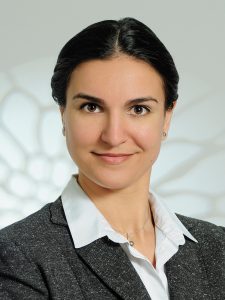
Gina Adam
Dr. Gina Adam has joined SEAS as an assistant professor in the Department of Electrical and Computer Engineering. Dr. Adam previously was a research scientist with the Romanian National Institute for Research and Development in Microtechnologies in Bucharest, Romania. She also held the post of visiting scholar at Ecole Polytechique Federale de Lausanne. Her research interests are in the broad field of building artificial neuronal networks that mimic their biological counterparts. Over the past few years she has been studying emerging resistive switching technology (RRAM) – two-terminal analog non-volatile electronic devices that have the potential to achieve high synaptic density comparable to biological neural circuits and with reasonable energy consumption. This includes three-dimensional RRAM crossbars, both stand-alone and monolithically integrated with CMOS circuity and issues related to manufacturability, reliability and yield.
Dr. Adam holds Ph.D. and Master of Science degrees in electrical and computer engineering from University of California, Santa Barbara, as well as a Master of Arts degree in teaching and learning from UCSB. She holds a Bachelor of Science degree in applied electronics from University Politehnica of Bucharest, Romania.
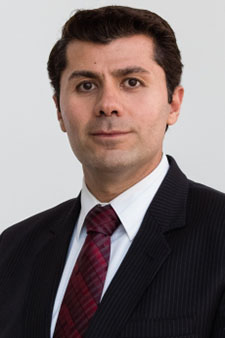
Amir Aslani
Dr. Amir Aslani has joined SEAS as an assistant professor of practice in the Department of Electrical and Computer Engineering. Dr. Aslani’s primary research interests are in the areas of electromagnetics and nanotechnology. His current research spans magnetic materials and nanoparticles, magnetic devices, MEMS/NEMS, magnetic refrigeration, and magneto-optical Kerr effect (MOKE). Dr. Aslani received his Ph.D., Master of Science, and Bachelor of Science degrees in electrical engineering from the George Washington University.
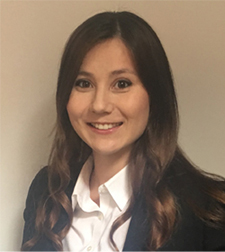
Aylin Caliskan
Dr. Aylin Caliskan has joined SEAS as an assistant professor in the Department of Computer Science. Dr. Caliskan previously was a CITP (Center for Information Technology Policy) Fellow and postdoctoral researcher at Princeton University. CITP is an interdisciplinary nexus of expertise in technology, engineering, public policy, and the social sciences. Her research involves machine learning, natural language processing, and computer vision in novel ways to interpret big data, develop privacy attacks with security implications, and gain insights about machines, humans, and society. She specializes in privacy attacks, privacy enhancing technologies, ethics of machine learning, and fairness in AI.
Dr. Caliskan received both her Ph.D. and Master of Science degrees in computer science from Drexel University. She also holds a Master of Science degree in robotics from University of Pennsylvania, and a Bachelor of Science degree in information systems engineering from The State University of New York at Binghampton.

John Helveston
Dr. John Helveston has joined SEAS as an assistant professor in the Department of Engineering Management and Systems Engineering. Dr. Helveston previously was a postdoctoral associate at the Institute for Sustainable Energy at Boston University. His primary research interest is understanding the factors that shape technology change, with a particular focus on transitioning to environmentally sustainable and energy-saving technologies. Within this broader category, he studies consumer preferences and market demand for new technologies as well as relationships between firm innovation, industry structure, and technology policy.
Dr. Helveston holds Ph.D. and Master of Science degrees in engineering and public policy from Carnegie Mellon University and a Bachelor of Science degree in engineering science and mechanics from Virginia Tech.
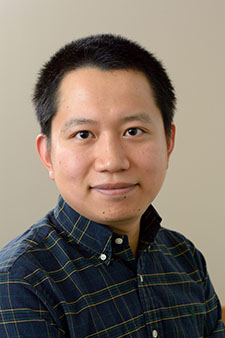
Luyao Lu
Dr. Luyao Lu has joined SEAS as an assistant professor in the Department of Biomedical Engineering. He previously was a postdoctoral fellow at the Center for Bio-Integrated Electronics at Northwestern University. Dr. Lu’s research involves developing unconventional, lightweight, conformal, and soft optoelectronic systems with high performance for advanced healthcare. He focuses on creating organic and inorganic classes of optoelectronic materials and devices such as solar cells, photodetectors, light emitting diodes, and diagnostic devices for various applications. He also has research interests in wearable and implantable biomedical devices using advanced organic electronic and photonic materials, structures, devices and systems to facilitate personalized medicine design and accurate disease diagnosis.
Dr. Lu holds a Ph.D. in chemistry from the University of Chicago and a Bachelor of Science degree in chemistry from Nanjing University.
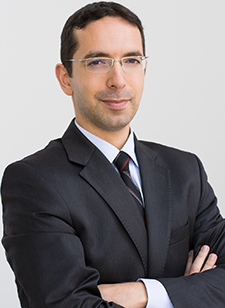
Omur Ozel
Dr. Omur Ozel has joined SEAS as an assistant professor in the Department of Department of Electrical and Computer Engineering. Dr. Ozel previously was a postdoctoral research associate in the Department of Electrical and Computer Engineering at Carnegie Mellon University. Before that, he was a postdoctoral researcher at Berkeley. His dissertation research focused on communication and information theoretic models to understand the role of intermittency and management of energy expenditure in energy harvesting communication systems. At Carnegie Mellon he focused on resilient estimation and control of cyber-attack detection in cyber-physical control systems.
Dr. Ozel holds a Ph.D. degree in electrical and computer engineering from University of Maryland, and Master of Science and Bachelor of Science degrees in electrical and electronics engineering from Middle East Technical University in Ankara, Turkey.
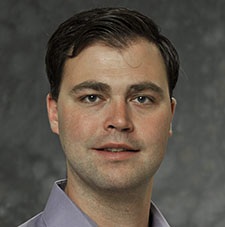
Arkady Yerukhimovich
Dr. Arkady Yerukhimovich has joined SEAS as an assistant professor in the Department of Computer Science. Dr. Yerukhimovich previously was a research scientist in the Secure Resilient Systems and Technology Group at MIT Lincoln Laboratory. His research focuses on bringing tools from theoretical cryptography into practice, including using techniques such as secure multi-party computation, functional encryption, and cryptographically protected search to build practical, provably secure solutions for real-world applications.
Dr. Yerukhimovich holds Ph.D. and Master of Science degrees in computer science from University of Maryland, a Bachelor of Science in computer science from Brown University, and a Bachelor of Arts in math-physics, also from Brown.

